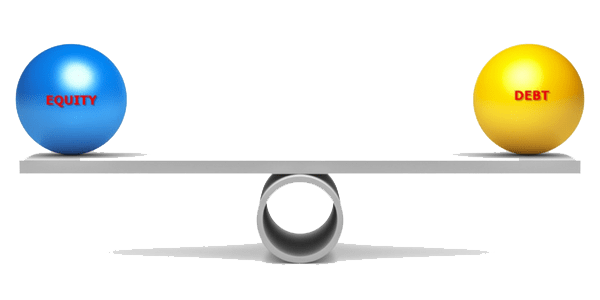Invest In Balanced Fund (Hybrid funds)
Balanced Mutual Fund:
Are you afraid of investing your whole money in Equity funds as they are high-risk funds but still looking for good returns then try investing in Balanced funds.
Top Best Balanced Fund To Invest In 2023 (Source: Policybazaar):
Funds | Five Year Returns | Three Year Returns | Required Investment |
Equity Direct fund Kotak | 14.86% | 20.65% | ₹5000 |
Prudential Equity & Debt fund ICICI | 16.41% | 19.67% | ₹5000 |
Equity & Bond fund DSP | 13.6% | 19.55% | ₹500 |
SBI Equity Hybrid Fund-Direct Plan-Growth | 15.09% | 18.66% | ₹1000 |
Mirae Asset Hybrid- Equity Fund-Direct Plan-Growth | 16.62% | 18.92% | ₹5000 |
Balanced funds are also called hybrid funds as the money is invested in both stocks and bonds. These types of Mutual funds are ideal for those people who are looking for a mixture of safety, income, and modest capital appreciation for a long-term goal.
In these funds the money is invested in a mixture of both debt and equity segments in specific ratios, investors can invest around 60% of their assets in stocks and 40% in bonds maintaining balanced growth with moderate risk on the returns.
People often ask, is it worth investing in Balanced funds for the Long term?
Balanced funds are good to invest for long-term growth because they are the mixture of equity stocks and bonds providing fixed income reducing the risk for the investors and they are good for your Retirement, therefore, always choose the best-balanced funds for retirement.
The mix of the mutual funds may shift over time or it may be fixed.

Tax Implications:
- Equity-oriented:
In most of these investments, about 65% or more is invested in (equity funds) stocks and qualify for taxation as equity funds.
If the investment is for less than 12 months then 15% taxation on its short-term capital gains or STCG and if it is more than one year, the long-term capital gains or LTCG are taxed at the rate of 10%.
The above tax regime is only applicable when the gains exceed Rs. 1 Lakh in total for the investment in a balanced fund.
- Debt-oriented:
When it comes to debt-oriented funds, they are taxed under the regime for debt assets and only if the investment is kept for more than 36 months then the gains are considered as long-term and are taxed at 20% after the indexation benefit.
If the investment is done for less than 3 years/ 36 months then the capital gains are treated as short-term and taxed at normal rates.
Advantages and Disadvantages Of Balanced Funds:
- When we compare balanced funds vs equity funds, Balanced Funds are safer compared to equity funds as they protect capital by their investment in debt so you can expect well-balanced fund returns.
- Risk Reduction as these funds invest around 40-60 percent of their assets into equities and the rest invest in debt.
- There’s no lock-in period for the investment, the investment can be withdrawn at any time but if redeemed before a certain period an exit load is deducted set by the mutual fund company.
Visit online and check for the best-balanced fund for SIP/Lumpsum to invest and visit the mutual fund company website or contact their Funds Managers to invest in the mutual funds.
To check the investment required to achieve your goals, you can check through an online balanced fund calculator and you can invest by Directly visiting the company website if facing an issue in choosing the right funds for you then try using third-party apps for direct investment like coin by Zerodha, ET money, Mycams, and other apps.
Also, Read at knowandask:


Its like you read my mind! You appear to know so much about this, like you wrote the book in it or something. I think that you can do with some pics to drive the message home a bit, but other than that, this is fantastic blog. A fantastic read. I’ll definitely be back.